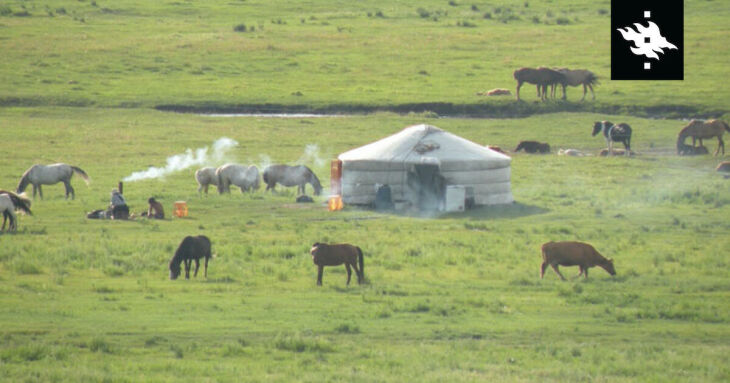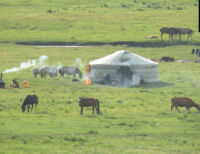More than half of the land cover on Earth might be used for pastoralism, a 10,000-year-old livelihood. It persists because of its great resilience, and its environmental and social advantages have been increasingly recognized in the last decades. But it still suffers from wrong investments.
In their new study, a team of researchers at the University of Helsinki and at the University of Oslo have examined why pastoralism is poorly understood globally, and proposed comparative means to examine the pathways of pastoralist societies.
The new study examines some examples where perspectives that integrate social, economic, and environmental aspects can understand the sustainability of pastoralism better. This applies to pastoralist systems from the Global South, but also from developed countries such as Finland, where the relationship between reindeer overgrazing and uncontrolled fodder provision has been overlooked.
"In addition, the collapse of the Finnish seminatural grasslands, now listed as the only Critically Endangered Finnish ecosystem and maintained by pastoralism, is a further example of this," explains Mar Cabeza, leader of the Global Change and Conservation group in the University of Helsinki.
The long history of pastoralism also offers an opportunity to learn from past crises.
“Reconstructing pathways helps identifying which critical combinations of factors can drive towards a collapse,” says Associate Professor Jussi T. Eronen.
Well-intentioned interventions that only touch upon one sustainability domain are likely to fail or, at least, not to manage an escape from critically dangerous thresholds.
“But coordinated interventions that carry out actions on social, economic, and environmental aspects will avoid environmental or social losses, such as local species extinctions, soil degradation or cheesemaking knowledge. With such rescued resources, the future of pastoralism may change radically for the good,” highlights Postdoctoral Researcher Pablo Manzano.
Creating a global pastoralist database to advance science and advocacy
The large extent and variety of pastoralist societies in the world demands a large amount of data to extract lessons. This includes archaeological, historic and current data for which adaptable indicators have to be designed. A global pastoralist database is being compiled by the research team, along with the League for Pastoral Peoples.
The participation of local and indigenous peoples in this process is of great importance because this information and the derived actions affect their future. Beyond the science generated by these actions, pastoralists can acquire powerful advocacy arguments and also participate in decision-making processes.
Reference:
Pablo Manzano, Daniel Burgas, Luis Cadahía, Jussi T. Eronen, Álvaro Fernández-Llamazares, Slimane Bencherif, Øystein Holand, Oula Seitsonen, Bayarmaa Byambaa, Mikael Fortelius, María E. Fernández-Giménez, Kathleen A. Galvin, Mar Cabeza, Nils Chr. Stenseth. Toward a holistic understanding of pastoralism. One Earth, Volume 4, Issue 5, 2021, Pages 651-665, ISSN 2590-3322, https://doi.org/10.1016/j.oneear.2021.04.012.
















